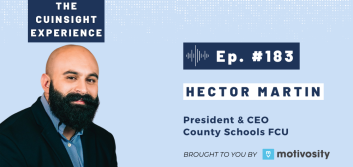2016: The Year of the HR Director

The monkey is the totemic symbol for the upcoming Chinese New Year. The personification of this year’s white collar employee is the frazzled HR director.
A combination of politics and policy is resulting in a perfect storm in which the federal government and localities, unable to bring about the type of robust economic growth from which everyone could benefit, are instead dreaming up an endless array of proposals to micromanage the American workplace. The result is that, at least in the short term, you will have less flexibility than you have traditionally had to manage employees.
Everyone agrees that the average employee is having a tough time finding a well-paying job, getting raises and putting aside enough money to allow the kids to go to college without mortgaging their future. There is, however, a huge divergence in opinion as to how this problem should be addressed. With an election year upon us, these bread and butter issues are perfectly designed to ignite party bases. November will be, in part, a referendum on these policies.
The leading example comes courtesy of the Department of Labor which is expected to unveil a final regulation more than doubling, to approximately $47,800, the salary employees must receive to be classified as a exempt, even if they meet the other requirements. Keeping in mind that nonexempt employees must get overtime, and how dependent many small and medium sized credit unions are on exempt supervisors, this single regulation will have a more direct impact on much of the industry’s bottom-line than any other mandate under consideration this year. Regardless of whether you are for or against this proposal, it is hard to think that the fact that it is being finalized during an election year is a coincidence. After all, the next president will have the power to either amend or support these final regulations.
A second area where the government is wading into the workplace without giving adequate consideration to the consequences of its actions has to do with legalized marijuana. On January 5th New York became the 23rd State to legalize possession. New York’s law is among the most restrictive limiting the use of the drug strictly to treat medical conditions. In these states, it is legal for your employees to use a drug that remains illegal as a matter of federal law. This Alice In Wonderland posture is the type of unchartered territory that plaintiff lawyers love to wade into… and employers dread. The Colorado Supreme Court, for example, has already had to decide how that state’s legal marijuana laws can be reconciled with zero tolerance drug policies.
But wait, there is more. There is the drive to increase the minimum wage and the push to ”ban the box” so that employers can’t consider an applicant’s criminal history as part of the employment process.
Mix this all together and what you have is an increasingly rigid workplace in which finely honed policies and well executed procedures are more important than ever before.
The longer I work in the industry the more I realize that credit unions are more than just not-for-profit cooperatives – they are small businesses, often based in areas where steady employment is hard to come by. For every well -meaning mandate, there is increased paperwork and greater liability, I’m not sure an approach that makes it more expensive to hire employees makes much sense, but I do know that, at least until the next election, this is the system we have.





